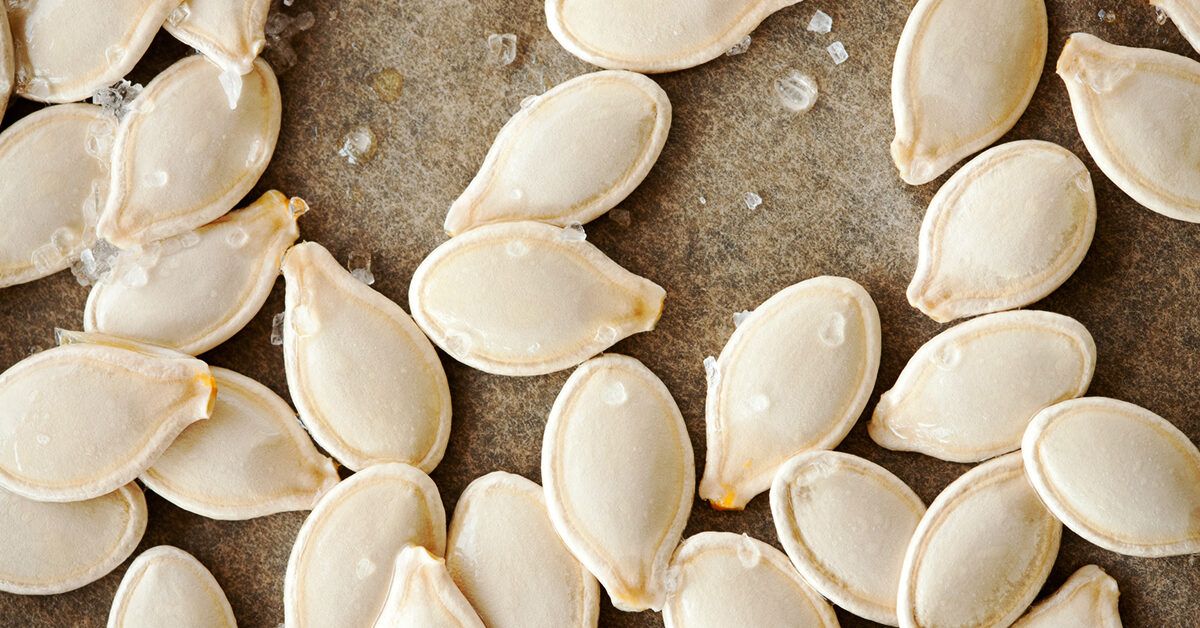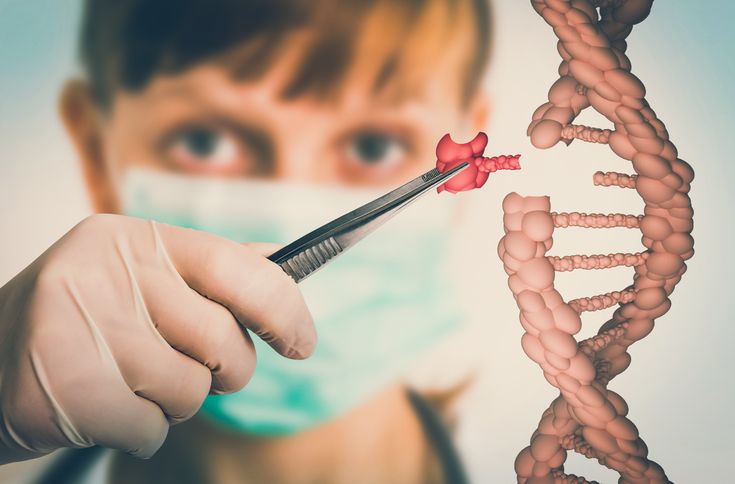Unlock the Power: The Surprising Health Benefits of Pumpkin Seeds
:max_bytes(150000):strip_icc()/Health-GettyImages-1391556635-1ee1f371ecb44387b9724cd5dfc36397.jpg)
Pumpkin seeds, often overlooked, offer a remarkable array of health benefits that can significantly contribute to overall well-being. These small powerhouses provide essential nutrients like antioxidants, fiber, healthy fats, magnesium, and protein, all of which play crucial roles in supporting various bodily functions, from ensuring a good night's rest to bolstering the immune system.
One of the cornerstone benefits of pumpkin seeds is their rich magnesium content. This vital mineral is involved in over 300 biochemical reactions within the body. Adequate magnesium intake, supported by foods like pumpkin seeds, helps to maintain a steady heartbeat, ensures proper nerve and muscle function, assists in managing blood sugar levels, facilitates energy production, strengthens bones, and supports a robust immune system. This makes them particularly valuable for maintaining foundational physiological processes.

Photo Credit: Google
For cardiovascular health, pumpkin seeds are a notable ally. A one-ounce serving contains more fat than carbohydrates or protein, predominantly comprising beneficial monounsaturated and polyunsaturated fats. These 'healthy fats' are known to reduce levels of low-density lipoprotein (LDL), often referred to as "bad" cholesterol, thereby lowering the risk of heart disease and stroke. Furthermore, the 1.84 grams of soluble fiber found in a one-ounce serving contributes to heart protection. Dietary guidelines suggest a daily fiber intake of 25 grams for females and 38 grams for males, highlighting the contribution pumpkin seeds can make.
Pumpkin seeds also offer specific benefits for male fertility. Research indicates that the zinc content, approximately 2.17 milligrams per one-ounce serving, is crucial for improving aspects of male reproductive health. Zinc deficiency has been linked to impaired sperm quality and development. Some evidence even suggests a positive impact on ejaculatory latency and sexual stimulation, underscoring their potential role in reproductive wellness.
In terms of cancer prevention, pumpkin seeds contain natural compounds called phytoestrogens, which are structurally similar to the hormone estrogen. While some studies have suggested a link between consuming phytoestrogen-rich foods and a reduced risk of breast cancer, the overall research in this area is mixed, and more extensive studies are required to definitively establish a positive effect.
For those struggling with sleep, pumpkin seeds could provide a natural remedy. They are a good source of tryptophan, an essential amino acid, providing about 576 milligrams per 100 grams. Tryptophan is a precursor to melatonin and serotonin, two hormones critical for sleep regulation. Melatonin governs the body's sleep-wake cycle, while serotonin plays a key role in regulating mood and promoting restful sleep, thus helping to improve sleep quality.
A closer look at the nutritional profile of one ounce of unsalted, shelled pumpkin seeds reveals: 163 calories, 13.9 grams of fat (including 2.42g saturated and 10.09g unsaturated), 5.1 milligrams of sodium, 4.17 grams of carbohydrates, 1.84 grams of fiber, and 8.45 grams of protein. Beyond these macronutrients, they provide 2.17 milligrams of zinc, essential for cell growth, pregnancy development, wound healing, carbohydrate metabolism, insulin action, and the senses of smell and taste. Additionally, they contain about 2.29 milligrams of iron, a vital component of hemoglobin, which is responsible for oxygen transport throughout the body and oxygen storage in muscles.
The antioxidant properties of pumpkin seeds are also significant, attributed to compounds like flavonoids and phenols. These antioxidants actively combat cell damage, offering protection against aging and various diseases. Flavonoids, in particular, have been associated with promoting health benefits such as protection against artery hardening, certain cancers, and cognitive decline. Phenols further contribute with their anticancer, anti-inflammatory, and antimicrobial effects. Interestingly, roasting pumpkin seeds might even enhance these beneficial antioxidant properties.
While generally safe and highly nutritious, it's important to consume pumpkin seeds in moderation. A one-ounce serving, while a healthy snack, contains approximately 163 calories. Excessive consumption can lead to an increased calorie intake, potentially resulting in weight gain. Furthermore, due to their rich fiber content, overindulgence may cause digestive discomforts such as bloating, gas, or general stomach upset.

Photo Credit: Healthline
Incorporating pumpkin seeds into your diet is simple and versatile. They can be enjoyed both shelled (white) and unshelled (green). Various culinary applications include adding them to salads, using them as a garnish for cooked vegetables, hummus, slaw, soups, and stir-fries. Pumpkin seed butter can be blended into baked goods, energy balls, pesto, sauces, and smoothies. Roasted shelled pumpkin seeds make for a delicious snack, and they can be sprinkled onto avocado toast, fruit salad, oatmeal, overnight oats, and yogurt.
For a protein boost, pumpkin seed protein can be whipped into blended soups, mashed cauliflower, and smoothies. When consuming shelled pumpkin seeds, remember to drink ample water to assist your digestive system in processing the fiber, as there have been rare reports of intestinal blockages in men consuming large quantities of shelled seeds.
You may also like...
Genetic Engineering: Ethical Innovation or Pandora’s Box?

"Genetic engineering promises cures, better crops, and scientific breakthroughs—but is humanity ready for the ethical di...
UCL Explodes: Brawl and Red Card Rock Controversial Monaco vs Man City Thriller!

A dramatic Champions League match saw Manchester City draw against Monaco due to a controversial late penalty. Erling Ha...
PSG Stuns Barcelona, Ending Undefeated Run with Ramos' Late Strike!
)
Paris Saint-Germain triumphed over Barcelona with a 2-1 victory at the Olympic Stadium, sealed by a late Goncalo Ramos g...
Sean Astin Leads SAG-AFTRA's Fierce Stance on AI, Vows Fight for Fair Compensation

The emergence of AI performer Tilly Norwood has intensified the debate on technology's role in Hollywood, leading SAG-AF...
Quentin Tarantino's Legendary 'Kill Bill: The Whole Bloody Affair' Hits Theaters for the First Time Ever!

Quentin Tarantino's complete vision, "Kill Bill: The Whole Bloody Affair," will finally receive its first nationwide the...
Trump Adviser's ICE Threat at Bad Bunny's Super Bowl Performance Draws Jay-Z's Fierce Defense

Bad Bunny's selection as the 2026 Super Bowl Halftime Show headliner has sparked political controversy, with a Trump adm...
Hollywood Split Scandal: Nicole Kidman Reportedly 'Blindsided' by Keith Urban's New Romance

Actress Nicole Kidman is reportedly "blindsided" by her sudden divorce from country singer Keith Urban after 19 years of...
Shocking Confession: Robbie Williams Reveals Decades-Long Secret Battle with Tourette's

Robbie Williams has bravely opened up about his mental health, revealing his experience with “inside Tourette’s” and his...
:max_bytes(150000):strip_icc()/OliveOil-ea74e49fad5640da8c3f330d5ee132ef.jpg)
:max_bytes(150000):strip_icc()/Health-GettyImages-1292399655-860b8f2a8e3b4d0f968a6892d6bd78d7.jpg)

:max_bytes(150000):strip_icc()/Health-GettyImages-1474708180-171a800364cf485eac8097087779b2de.jpg)
:max_bytes(150000):strip_icc()/Health-GettyImages-2167564745-e6748455712041dca68148e125ac1642.jpg)